-
 Bitcoin
Bitcoin $97,671.4354
-0.38% -
 Ethereum
Ethereum $2,824.5776
3.71% -
 Tether USDt
Tether USDt $1.0001
-0.01% -
 XRP
XRP $2.4386
-2.84% -
 Solana
Solana $201.2844
-1.75% -
 BNB
BNB $577.2575
0.32% -
 USDC
USDC $1.0001
0.01% -
 Dogecoin
Dogecoin $0.2616
-1.05% -
 Cardano
Cardano $0.7552
0.69% -
 TRON
TRON $0.2258
1.29% -
 Chainlink
Chainlink $19.6801
-0.85% -
 Avalanche
Avalanche $26.3099
-1.82% -
 Sui
Sui $3.3846
-6.95% -
 Stellar
Stellar $0.3362
-1.46% -
 Toncoin
Toncoin $3.8795
1.68% -
 Shiba Inu
Shiba Inu $0.0...01589
-0.63% -
 Hedera
Hedera $0.2446
-3.00% -
 UNUS SED LEO
UNUS SED LEO $9.8456
0.44% -
 Hyperliquid
Hyperliquid $26.0302
0.71% -
 Litecoin
Litecoin $106.6878
3.96% -
 Bitget Token
Bitget Token $6.5941
0.37% -
 Polkadot
Polkadot $4.7748
0.60% -
 Bitcoin Cash
Bitcoin Cash $331.0062
-0.19% -
 Ethena USDe
Ethena USDe $1.0002
0.09% -
 Uniswap
Uniswap $9.3603
0.84% -
 MANTRA
MANTRA $5.7779
-2.07% -
 Dai
Dai $1.0000
0.02% -
 Ondo
Ondo $1.3873
1.46% -
 Monero
Monero $235.8959
5.17% -
 Pepe
Pepe $0.0...01027
0.67%
What is the circulating supply of Request (REQ) coins?
Calculating the circulating supply of Request Network's REQ token involves subtracting locked and unsold tokens from the total supply, which plays a crucial role in determining its price, market capitalization, and liquidity.
Dec 25, 2024 at 09:07 pm

Key Points
- Understanding Circulating Supply
- Determining Request (REQ) Circulating Supply
- Calculating Circulating Supply from Total Supply
- Influencing Factors on Circulating Supply
- Importance of Circulating Supply in Cryptocurrency
1. Understanding Circulating Supply
Circulating supply refers to the number of tokens or coins that are readily available for trading in the market at any given time. It excludes tokens locked in development, held by the project team, or staked for specific purposes. Measuring circulating supply provides insights into the actual supply of a cryptocurrency available to the public.
2. Determining Request (REQ) Circulating Supply
Request Network's native token, REQ, operates on the Ethereum blockchain. As such, its circulating supply can be determined through a combination of information from the blockchain and official sources.
3. Calculating Circulating Supply from Total Supply
The total supply of REQ is known and fixed at 1 billion tokens. However, circulating supply differs from total supply due to various reasons, including:
- Burned tokens: REQ tokens can be permanently removed from circulation through the Request Network burn mechanism, reducing the total and circulating supply.
- Locked tokens: A portion of REQ may be locked in smart contracts for specific purposes, limiting their availability in the market.
- Unsold tokens: Some REQ tokens may remain unsold and held by the project team or other entities, contributing to a difference between total and circulating supply.
4. Influencing Factors on Circulating Supply
The circulating supply of REQ can be influenced by several factors:
- Network activity: Increased transaction volume and network usage can lead to token burns, reducing the circulating supply.
- Demand and supply: Market demand and supply influence the number of REQ tokens traded and available in exchanges.
- Token release schedule: The release of tokens from locked or vested sources can increase the circulating supply over time.
5. Importance of Circulating Supply in Cryptocurrency
Circulating supply plays a crucial role in cryptocurrency valuation and market dynamics:
- Price discovery: Circulating supply helps determine the price of a cryptocurrency based on its availability and scarcity.
- Market cap: Market capitalization, a measure of the cryptocurrency's value, is calculated by multiplying the circulating supply by its current price.
- Liquidity: Circulating supply indicates the amount of a cryptocurrency available for immediate trade, impacting its liquidity and volatility.
FAQs
1. How often is REQ's circulating supply updated?
Request Network maintains an official website where it regularly updates information regarding the circulating supply and other relevant metrics.
2. What factors could increase REQ's circulating supply in the future?
- Token release schedule for locked or unsold tokens
- Burn rate reduction or changes in burn mechanisms
- Increased demand and trading activity
3. What factors could decrease REQ's circulating supply in the future?
- Continued token burns
- Increased token locking for specific purposes
- Reduced market demand and trading volume
Disclaimer:info@kdj.com
The information provided is not trading advice. kdj.com does not assume any responsibility for any investments made based on the information provided in this article. Cryptocurrencies are highly volatile and it is highly recommended that you invest with caution after thorough research!
If you believe that the content used on this website infringes your copyright, please contact us immediately (info@kdj.com) and we will delete it promptly.
- Bitcoin (BTC) Price Forms A Bearish Channel On The 4-Hour Chart
- 2025-02-06 13:06:02
- Bitcoin (BTC) Faces Continued Volatility – But Market Remains Bullish
- 2025-02-06 12:56:02
- Expert Analysis: How Will the SEC’s Next Move Shape XRP’s Future?
- 2025-02-06 12:56:02
- MicroStrategy Rebrands As Strategy, Positioning Itself as the World's First and Largest Bitcoin Treasury Company
- 2025-02-06 12:56:02
- LCX Crypto: Revolutionizing Digital Trading and Security
- 2025-02-06 12:46:02
- Malone Crypto: Shaping the Future of Digital Money
- 2025-02-06 12:46:02
Related knowledge
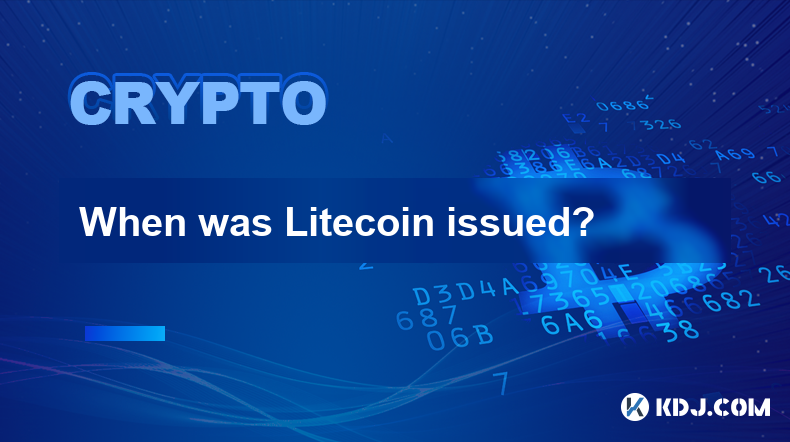
When was Litecoin issued?
Feb 04,2025 at 02:36am
When was Litecoin Issued?Key Points:Litecoin's inception and developmentLitecoin's launch date and market dynamicsLitecoin's technical specifications and key featuresLitecoin's Inception and DevelopmentLitecoin, conceived by former Google engineer Charlie Lee, emerged as a fork of Bitcoin in October 2011. Inspired by Bitcoin's revolutionary blockchain t...
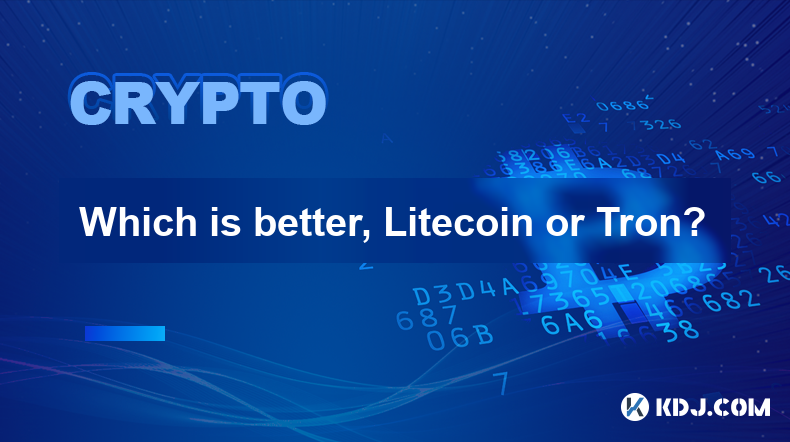
Which is better, Litecoin or Tron?
Feb 04,2025 at 10:30pm
Key Points:Similarities between Litecoin and Tron: Decentralized, open-source blockchain platformsDifferences between Litecoin and Tron: Use cases, consensus mechanisms, transaction speedsFactors to consider when choosing between Litecoin and Tron: Investment goals, risk tolerance, specific use casesPotential benefits and drawbacks of Litecoin and Tron:...
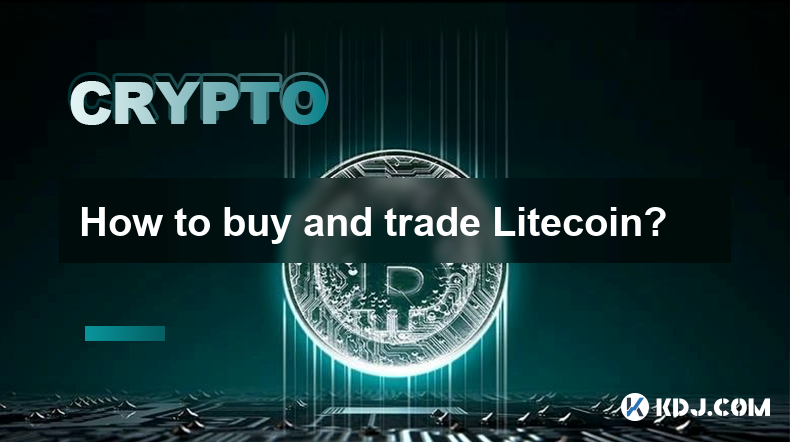
How to buy and trade Litecoin?
Feb 04,2025 at 12:24pm
Key Points:Understand the Basics of LitecoinSelect a Suitable Cryptocurrency ExchangeCreate an Account on the ExchangeFund Your AccountPlace a Buy Order for LitecoinSecurely Store Your LitecoinUnderstand Litecoin TradingHow to Buy Litecoin?1. Understand the Basics of LitecoinLitecoin (LTC) is a decentralized digital currency similar to Bitcoin.Created i...
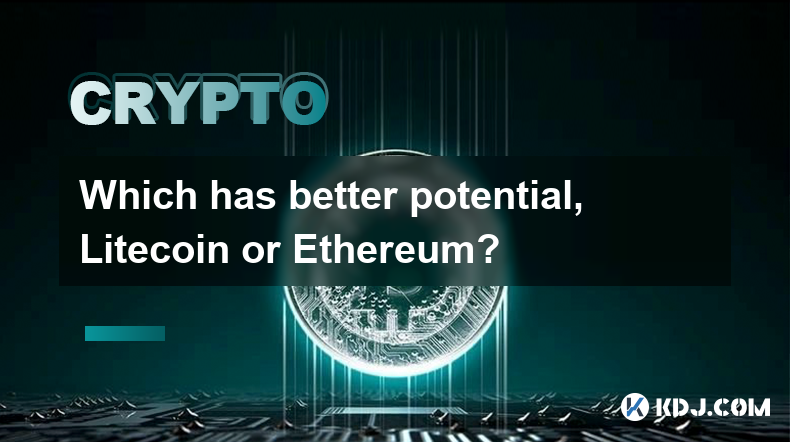
Which has better potential, Litecoin or Ethereum?
Feb 04,2025 at 05:30pm
Key Points:Litecoin and Ethereum are two of the most popular cryptocurrencies in the world.Both coins have their own unique advantages and disadvantages.Litecoin is a faster and cheaper transaction coin than Ethereum.Ethereum is a more versatile platform than Litecoin, and it can be used to create decentralized applications (dApps).Litecoin has a long h...
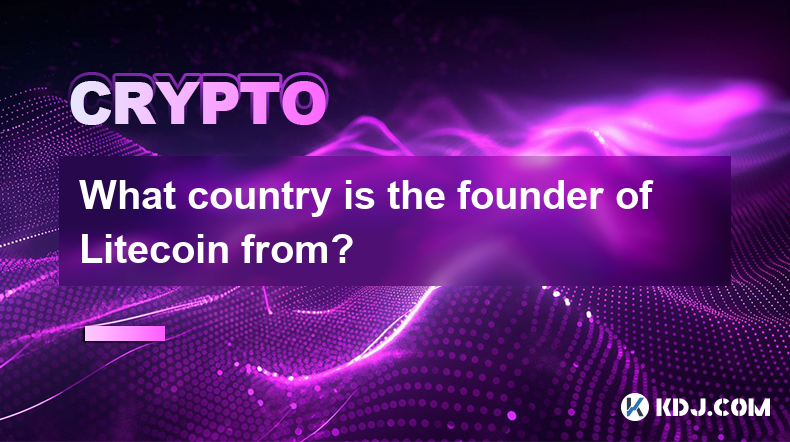
What country is the founder of Litecoin from?
Feb 04,2025 at 05:55am
Key Points:Litecoin's Founder and the Relationship with Charles LeeLitecoin's Technical Features and Similarities to BitcoinLitecoin's Role in the Cryptocurrency Ecosystem and Its PopularityComparative Analysis of Litecoin with Major CryptocurrenciesLitecoin's Community Involvement and PartnershipsArticle Content:Litecoin's Founder and the Relationship ...
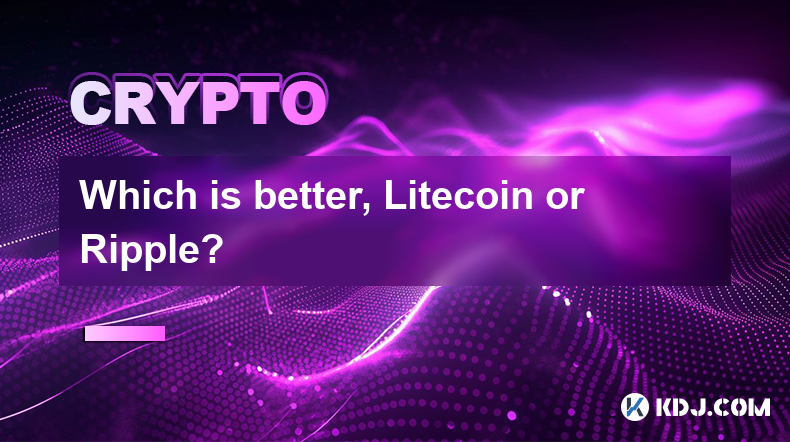
Which is better, Litecoin or Ripple?
Feb 04,2025 at 08:00pm
Key Points:Litecoin: a decentralized, peer-to-peer cryptocurrency based on the Proof-of-Work consensus mechanismRipple: a centralized, enterprise blockchain solution designed for fast and low-cost paymentsDirect comparison of Litecoin vs. Ripple in terms of technology, market capitalization, use cases, and transaction feesPotential benefits and drawback...

When was Litecoin issued?
Feb 04,2025 at 02:36am
When was Litecoin Issued?Key Points:Litecoin's inception and developmentLitecoin's launch date and market dynamicsLitecoin's technical specifications and key featuresLitecoin's Inception and DevelopmentLitecoin, conceived by former Google engineer Charlie Lee, emerged as a fork of Bitcoin in October 2011. Inspired by Bitcoin's revolutionary blockchain t...

Which is better, Litecoin or Tron?
Feb 04,2025 at 10:30pm
Key Points:Similarities between Litecoin and Tron: Decentralized, open-source blockchain platformsDifferences between Litecoin and Tron: Use cases, consensus mechanisms, transaction speedsFactors to consider when choosing between Litecoin and Tron: Investment goals, risk tolerance, specific use casesPotential benefits and drawbacks of Litecoin and Tron:...

How to buy and trade Litecoin?
Feb 04,2025 at 12:24pm
Key Points:Understand the Basics of LitecoinSelect a Suitable Cryptocurrency ExchangeCreate an Account on the ExchangeFund Your AccountPlace a Buy Order for LitecoinSecurely Store Your LitecoinUnderstand Litecoin TradingHow to Buy Litecoin?1. Understand the Basics of LitecoinLitecoin (LTC) is a decentralized digital currency similar to Bitcoin.Created i...

Which has better potential, Litecoin or Ethereum?
Feb 04,2025 at 05:30pm
Key Points:Litecoin and Ethereum are two of the most popular cryptocurrencies in the world.Both coins have their own unique advantages and disadvantages.Litecoin is a faster and cheaper transaction coin than Ethereum.Ethereum is a more versatile platform than Litecoin, and it can be used to create decentralized applications (dApps).Litecoin has a long h...

What country is the founder of Litecoin from?
Feb 04,2025 at 05:55am
Key Points:Litecoin's Founder and the Relationship with Charles LeeLitecoin's Technical Features and Similarities to BitcoinLitecoin's Role in the Cryptocurrency Ecosystem and Its PopularityComparative Analysis of Litecoin with Major CryptocurrenciesLitecoin's Community Involvement and PartnershipsArticle Content:Litecoin's Founder and the Relationship ...

Which is better, Litecoin or Ripple?
Feb 04,2025 at 08:00pm
Key Points:Litecoin: a decentralized, peer-to-peer cryptocurrency based on the Proof-of-Work consensus mechanismRipple: a centralized, enterprise blockchain solution designed for fast and low-cost paymentsDirect comparison of Litecoin vs. Ripple in terms of technology, market capitalization, use cases, and transaction feesPotential benefits and drawback...
See all articles
























































































